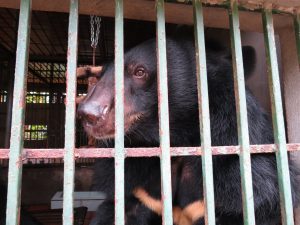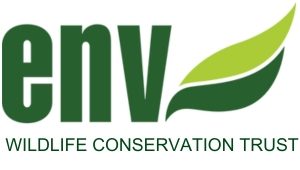Bear farming has persisted for decades in Vietnam. However, the number of captive bears at farms has been reduced from approximately 4,300 in 2005 to around 700 in April 2019 thanks to the hard work of the government, law enforcement authorities, NGOs, and members of the public.
While this great progress should be celebrated, we must turn our attention to finishing off what remains of the bear bile industry, closing remaining farms, and transferring the remaining bears that were originally acquired illegally to rescue centers and sanctuaries. Success in ending this industry is critical to the survival and recovery of wild bear populations in Vietnam.

A crucial component in our efforts to end bear farming is the ENV 1800-1522 wildlife hotline which bear owners can use for advice and assistance on transferring the bears and navigating the inevitable paperwork involved. It is also a valuable conduit for local residents or other members of public to report any bear related violations, from suspicious bear movements to retail establishments offering for sale bear bile or other bear products such as paws and claws.
Putting the bear bile business to bed
Bear farming first boomed in Vietnam in the 1990s. Bears were captured in the wild and sold to farms where bile was extracted to meet market demand. Many Vietnamese, especially the older generation, believe that bear bile is a magic medicine and can cure a range of health problems, ranging from bruises to cancer.
In 2005, the government in collaboration with World Animal Protection, initiated a registration campaign as the first step in phasing out bear farming in Vietnam. The registration of captive bears was designed to phase out bear farming in Vietnam by arresting the growth of the bear farming industry and preventing new bears entering farms. Approximately 4,300 bears were registered, each inserted with a microchip for identification. Since then the number of captive bears has been steadily declining, and by April 2019 ENV records indicate only about 700 captive bears remained at farms.
The bear bile industry continues to decline in the face of reduced demand for bear bile, growing public opposition, and increased pressure from the authorities.
